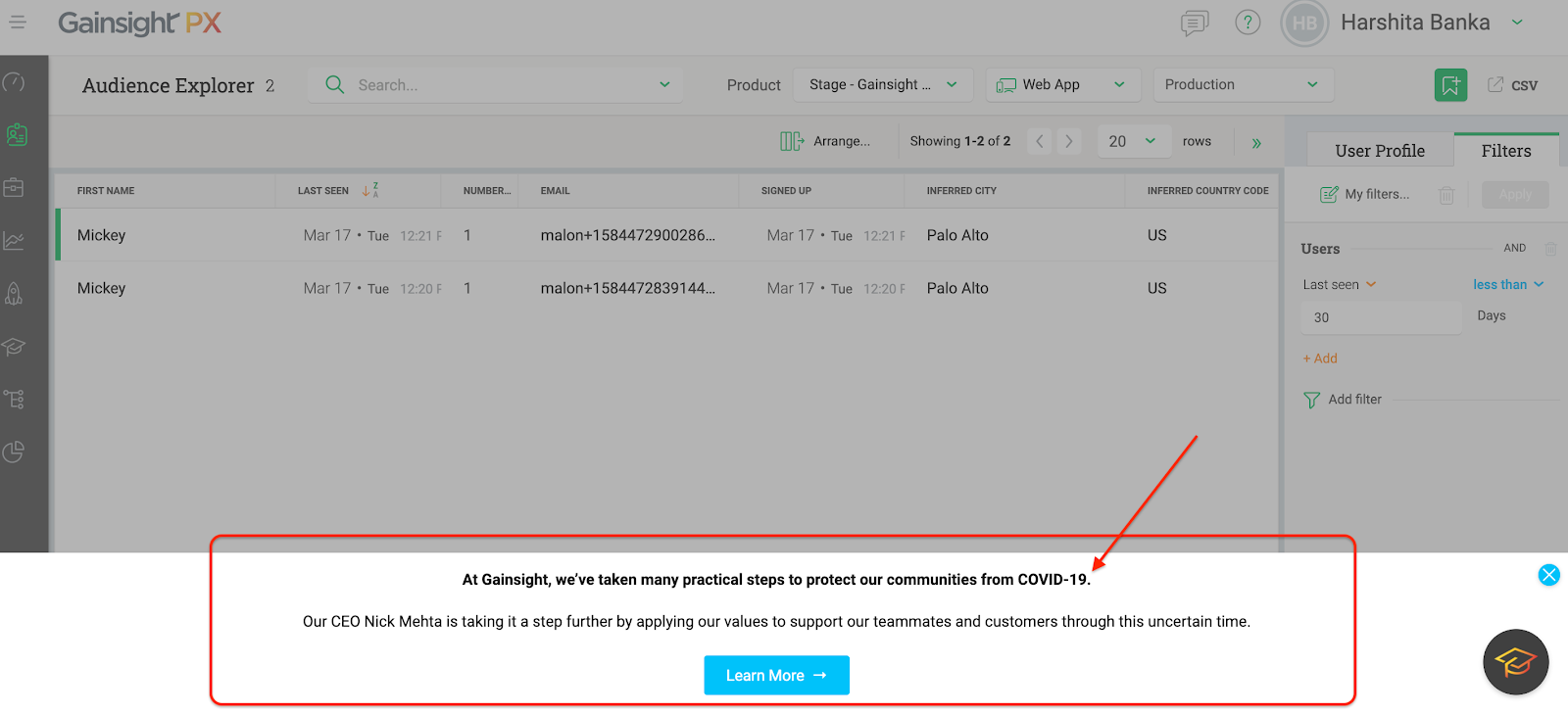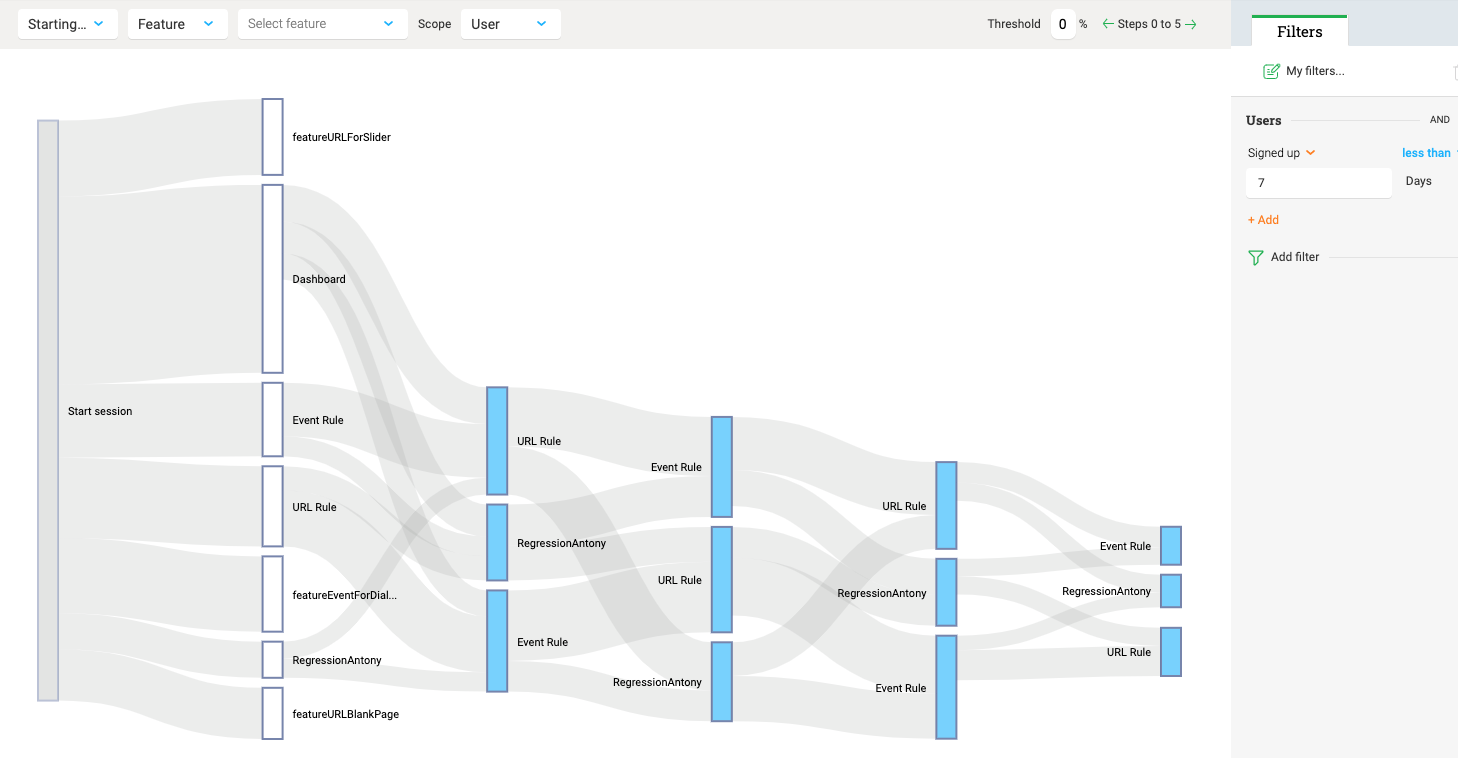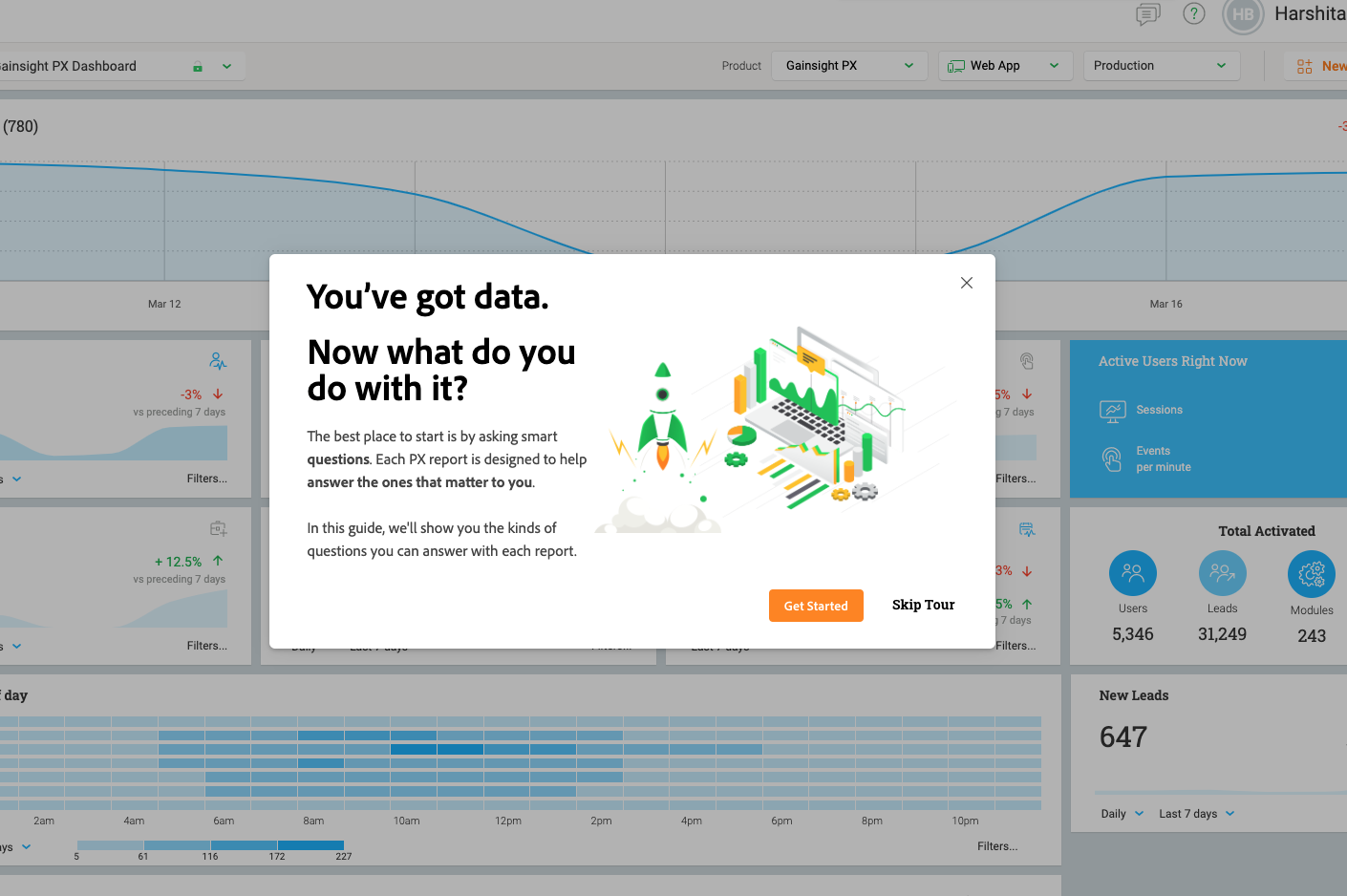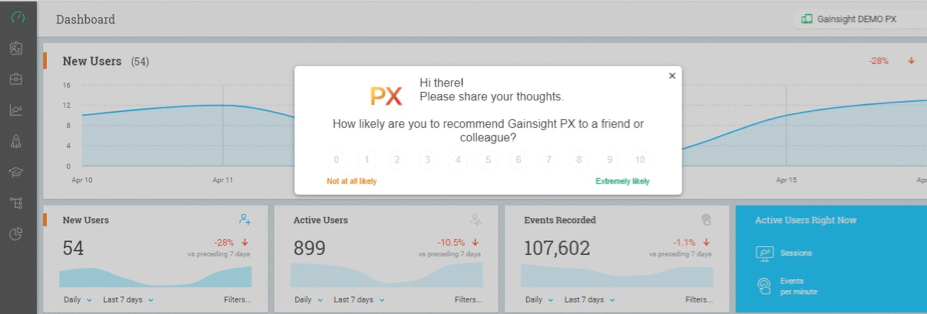With the global shift to remote work, our customers have experienced a 50% increase in Monthly Active Users.
We are all using our daily products more to stay connected and work together with our colleagues. We’ve never dealt with anything like COVID-19 globally before. It’s urging us to be more creative and to show more kindness in everything we do—both at work and at home.
This important moment for humanity has led to a key event in the lifecycle of your customers. More users in your product create more chances to build lasting relationships, but it also increases the effort needed to make sure each user achieves success. How can we offer a personalized experience to users when our ways of reaching them are more restricted than before?
What is a high-touch product experience?
A high-touch approach typically involves very close contact with your high-value customers. Creating this same white-glove experience in your product requires a high level of personalization that makes the product feel tailormade. To deliver this level of customization, you need product analytics to slice and dice your customer segments and in-app engagements to reach out to users within your product and guide them along individualized journeys. A product experience platform enables you to deliver experiences like this at scale.
Here are five tactics you can use to provide the best high-touch experience to your customers during a time of “no-touch” and social distancing.
Use in-app engagements to send timely outreaches
In-app engagements are great ways to reach out to very specific segments of your users. They’re also incredibly important tools in times like these where critical information needs to be shared ASAP. The more criteria by which you segment your in-app engagements, the more personalized you can make your product experience.
In our own products, we created an in-app banner (below) to guide users to a blog post by our CEO. It addresses the ways we’re handling the situation as a company and provides a human element behind the screen.
A banner engagement directing users to content surrounding COVID-19.
If you have content of your own to share, consider using cohorts to send relevant content to user groups in different verticals or parts of the world. You can also use in-app engagements to communicate the following events:
- COVID-19 announcements/updates (we’ve noticed some of our customers doing this already!)
- Company/T&C policy updates
- Support delays/FAQs
- Trial extensions
- Event cancellations/rescheduling
- System outages/planned maintenance
- Free trainings/learning resources
Track and act on usage trends and patterns
Analyze the actionable usage trends in your product and you’ll likely observe an upward trend, just as we are noticing. Understanding how users are actually using your product will help you pinpoint areas to provide a more personalized user experience:
An example of a Path Analysis in Gainsight PX.
-
- Path Analysis: Understand the path your new/reactivated users are taking. How are they getting from Point A to Point B? Are they following the best workflow? Use the answers to these questions to craft engaging ways to get users on the right track.
- Adoption Analysis: Identify the usage trends of your high-value features in your product. How can you make sure people get the most from these features? Think in terms of different segments of customers and create in-app engagements that share a relevant use case they can take as an example.
A Funnel Analysis from Gainsight PX.
- Funnel Analysis: Track the completions of important workflows and use these insights to optimize the user journey. Are users dropping off at a certain point? What could be the cause?
Use the data collected in the analyses above to create contextual in-app guides and tours. Here’s are some ways you can guide specific segments of users:
- New Users: Use Welcome Dialogs to guide them to the first high-value action. Trigger a series of tours to help them navigate through your product and catalyze initial Time-to-Value.
- Reactivated Users: Use email outreach to reactivate dormant users. Trigger in-app guides to help these users who have reentered your app to complete workflows from where they left off. Educate them about your new product features/ functionalities.
- Advanced Users: Push them to realize even more value out of your product by directing to them to some of your advanced features and workflow.
A guide in Gainsight PX helping users understand the reporting features.
Gather feedback and close the loop
Capturing customer sentiment is a great way to keep your finger on the pulse of your user base, no matter how large. It can also create ways for you to segment your users to create more personalized experiences.
Use usage data and lifecycle events (renewals, onboarding, etc.) to find key moments to capture sentiments. As a best practice, we recommend targeting users who have been a user for at least 30 days and have visited your product at least four times. This will ensure you avoid surveying new users. Some types of surveys you can use are:
- NPS
- Product release feedback (if applicable)
- Multi-questionnaire feedback on the product
An NPS survey triggered for users in Gainsight PX.
The next step is even more important—act on the information that’s shared and close the loop with your users.
- Use the data to improve your in-app engagement strategy
- Incorporate feedback into your product roadmap
- Address your detractors and turn promoters into advocates.
Turning Feedback into Reality:
Use a workflow like this to productize your feedback: Analytics → Contextual In-App Experience/Guidance → Collecting Feedback → Tracking success / increased adoption / improved user experience/feedback → Productizing the feedback.
Conclusion
If you’re in Product, you have the opportunity to make lives easier for your customers and your teammates. The more you focus on creating a targeted experience for your users, the more of a weight you take off the shoulders of your customer-facing teams. And in a time where retention is of the utmost importance, you play a key role in getting customers to value. How are you providing a white-glove experience for your users during social distancing?




